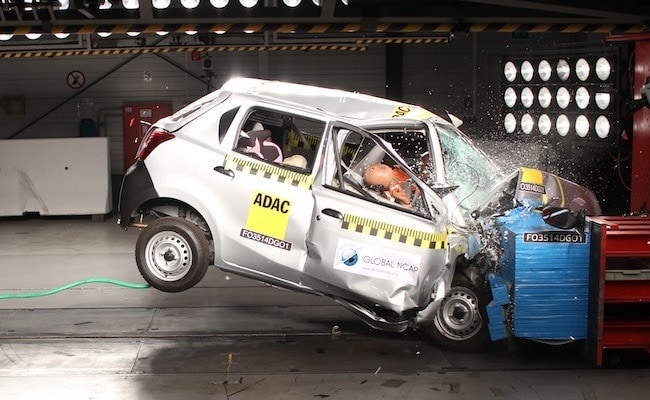"It is just scaremongering"
"Global NCAP can do what they want. We have our own safety road map that we are going to follow and are already following."
"...the UK-based agency has not considered that average speeds in India are lower than in the developed world, due to poor road conditions and heavy traffic"**
Links by Reuters and BBC here and here.
Does SIAM not know that India has the worst road safety record in the world? Granted, passenger car safety is just one part of the entire issue (poor road design and conditions, lax driver attitudes towards traffic rules, lack of respect for vulnerable users like pedestrians or scooterists, etc.). However, passenger car safety is actually the easiest one to fix. Just make airbags compulsory on all cars, or specify minimum structural rigidity for instance - these are not major changes. But this is not the first time that SIAM has tried to turn a blind eye to safety. In the past, the lobby group has actively tried to scuttle moves to improve safety norms or make airbags compulsory - simply because sales would dip somewhat. Agreed, many Indian customers are still cold to the idea of paying for safety, but that's changing rapidly, and anyway the role of the industry body must be to catalyze movement towards a better world, not act as a barrier. Just wish they would get rid of their naked-capitalist mentality and start thinking of total societal good.
By the way, hats off to Honda and a few other OEMs who stay well ahead of SIAM's current (antiquated) safety norms and actually offer Indian customers the same car safety as customers in the rest of the world.
**The tests were done at 64kmph. Now that's a pretty reasonable impact speed for Indian standards. Cars now typically do 80-100kmph on Indian highways, so a collision impact speed of 64kmph would probably be fairly common, especially in head-on incidents. And the point about heavy traffic is almost a joke. Traffic and low speeds is a reality in urban India, not on highways or expressways like the one below (this is increasingly the design spec for India's national highways, which carry 40% of India's people and goods).

